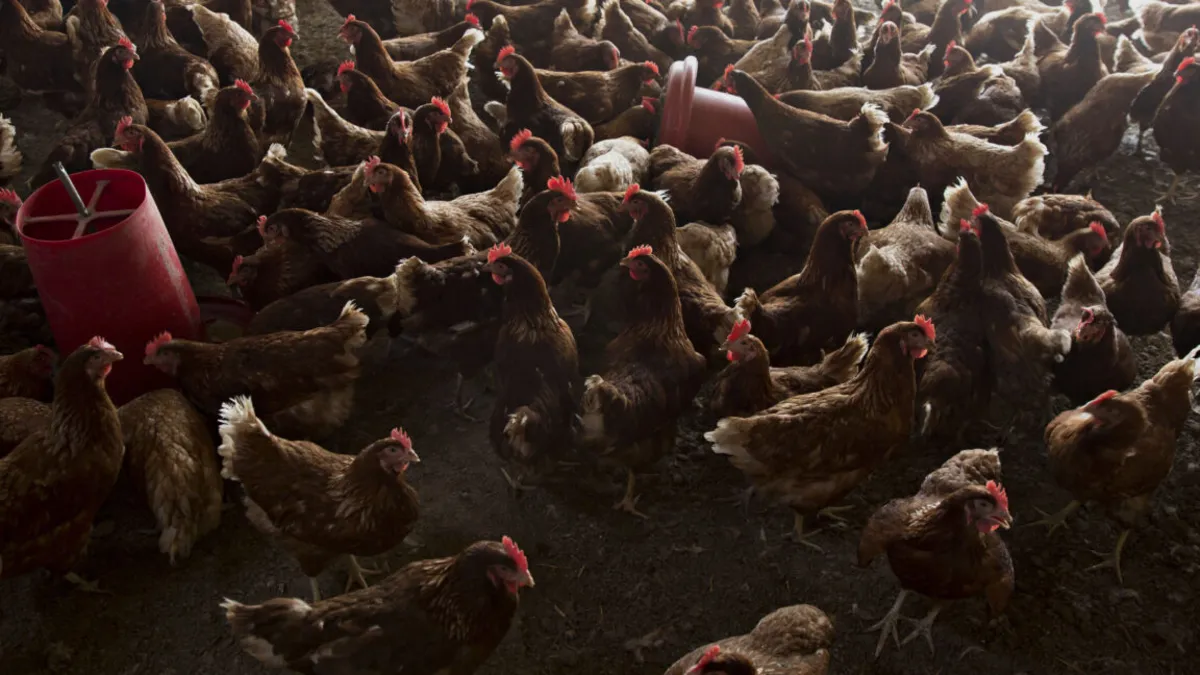
As the bird flu outbreak continues to wreak havoc in dairy farms and poultry facilities across the United States, alarming reports indicate that the office responsible for coordinating the federal government's response to pandemic threats has been effectively sidelined by President Trump. According to CNN, the White House Office of Pandemic Preparedness and Response Policy (OPPR), which was established by Congress in 2022 following the COVID-19 pandemic, is now nearly empty, with only one staff member remaining.
The OPPR was originally designed to comprise a team of around 20 experts dedicated to managing public health crises, including avian influenza outbreaks. However, the current situation raises serious questions about the nation’s ability to effectively respond to ongoing and future pandemic threats. The director of OPPR has been reassigned to the National Security Council (NSC), leading to uncertainty regarding the remaining staff's reporting structure and responsibilities.
Since the Trump administration took office, reports have surfaced indicating a shift in focus. The U.S. Department of Agriculture (USDA) has redirected its strategy regarding the bird flu outbreak, emphasizing the economic implications over health concerns. For instance, Agriculture Secretary Brooke Rollins recently highlighted a $1 billion initiative aimed at combating bird flu primarily to ensure the availability of affordable eggs, rather than prioritizing public health.
Adding to the controversy, Health Secretary and noted anti-vaccine advocate Robert F. Kennedy Jr. has controversially suggested that farmers should allow the virus to spread among their flocks, rather than adhering to the current practice of culling infected birds. During an interview on Fox News, Kennedy stated, "Farmers should consider maybe the possibility of letting it run through the flock so that we can identify the birds that are immune to it." This proposal has drawn sharp criticism from health experts who warn that such an approach could be inhumane and pose significant risks to farm workers while exacerbating economic losses.
Rollins seemed to entertain this troubling notion, suggesting that some farmers are willing to experiment with this strategy as they work to create a "safe perimeter." Experts have quickly condemned this idea, highlighting that allowing the virus to spread unchecked could lead to more virulent strains, as has been witnessed in a recent outbreak in Mississippi.
This week, the USDA reported the discovery of a new and highly pathogenic strain of avian influenza, H7N9, in a broiler chicken breeder flock in Mississippi. While the strains circulating in wild birds this year have generally been less harmful, this particular outbreak has proven lethal for the 46,000-bird flock in question. Experts believe that the virus likely evolved into a more dangerous form after jumping from wild birds to captive poultry, raising alarm bells about the ongoing threat posed by bird flu.
Since 2022, over 166 million poultry in the U.S. have been affected by the bird flu, and the highly pathogenic virus has also reached 989 dairy herds across 17 states. To date, at least 70 people have contracted the virus, and one individual has tragically lost their life. The lack of coordinated response raises significant concerns about public health and the effectiveness of the federal response under the current administration.
Under the Biden administration, the Health and Human Services Department routinely held press briefings to update the public on the state of the bird flu outbreak. However, since President Trump took office, such briefings have ceased. The OPPR previously facilitated crucial interagency communication, ensuring that all relevant health organizations—including the Centers for Disease Control and Prevention (CDC) and the Food and Drug Administration (FDA)—were aligned in their response efforts.
Senator Patty Murray (D-Wash.), who co-authored the legislation that established OPPR, has expressed concern regarding the Trump administration's treatment of the office. She stated, "Under the last administration, OPPR served as the central hub coordinating a whole-of-government response to pandemic threats." While President Trump cannot legally disband OPPR, Murray emphasized the importance of maintaining it as a separate entity to ensure effective responses to public health threats.
As the nation grapples with the ongoing bird flu crisis and other emerging health threats, the sidelining of OPPR raises alarm bells for public health advocates and experts alike. The need for a coordinated response has never been more urgent.